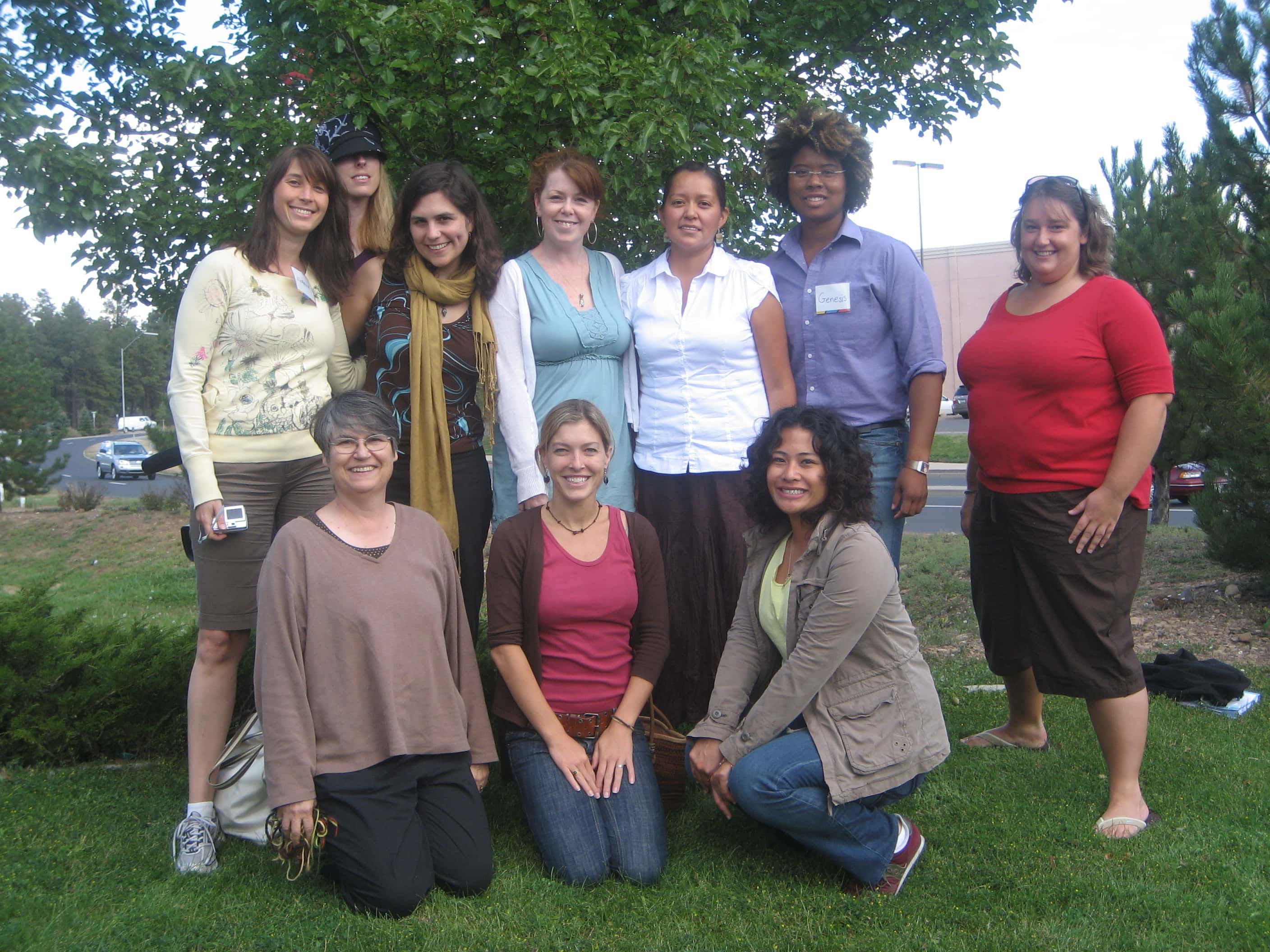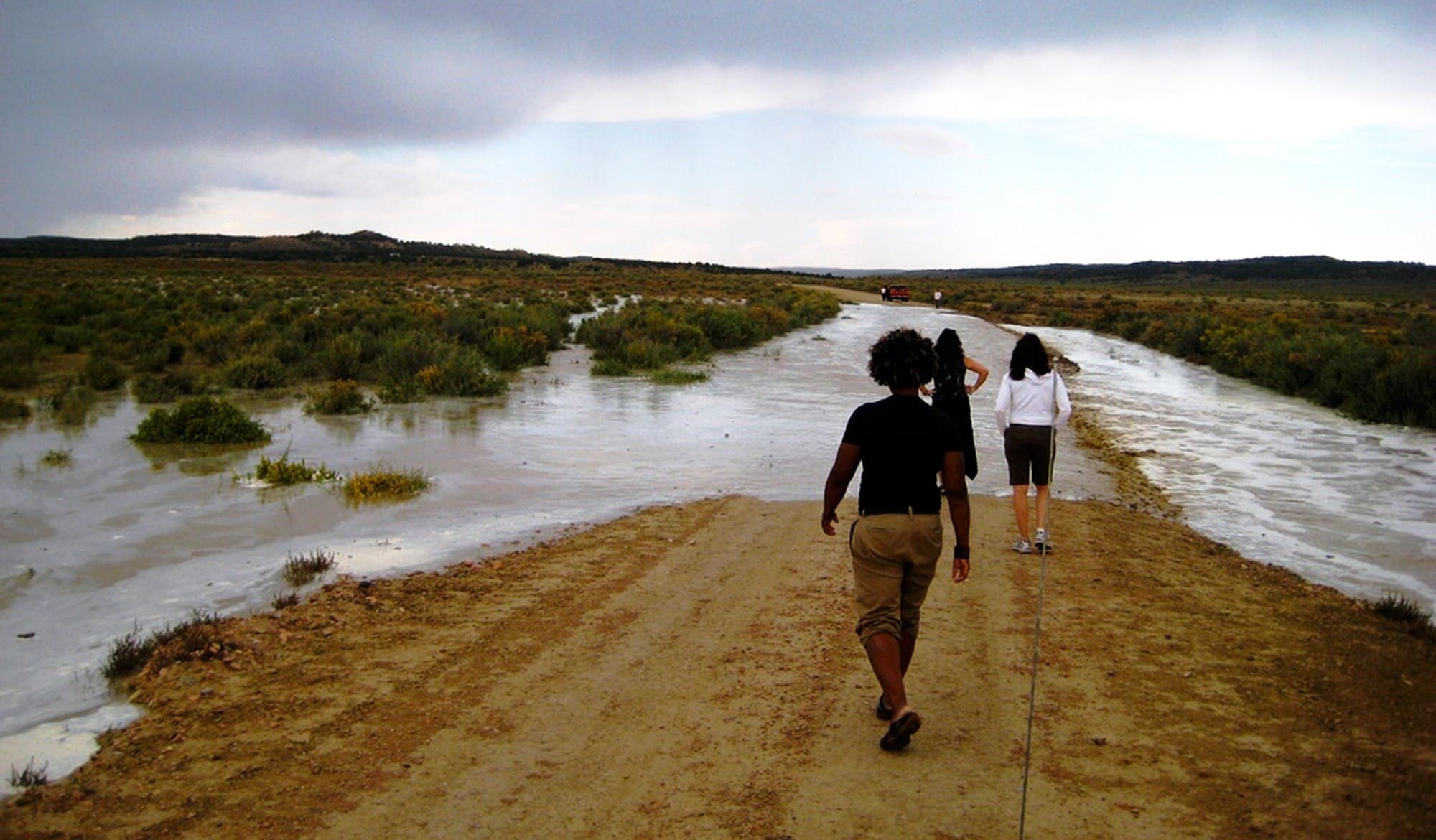In September 2008, the WEA Advocacy Delegation met with Native American communities whose sacred places are gravely threatened by mining and commercial development.
As we learned from courageous women leaders about these critical campaigns to protect their holy mountains and communities from destruction, we began to see that we are all inextricably connected to these struggles, no matter our own lineage or geographic location.
Meet the Women Leaders
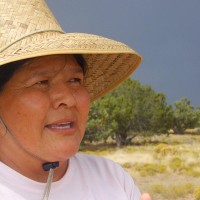
Louise Benally and her family were one of the few Diné families to resist relocation. In 1977, three years after the Navajo-Hopi Act was passed, Louise was only 14 years old and was arrested for protesting the installation of a barbed-wire fence on her ancestral land. Louise’s arrest sparked a lifelong commitment to defend the rights of her people. Louise has been an integral member of Diné Alliance, a grassroots alliance working to advocate for the rights of Dine cultural and spiritual sovereignty.
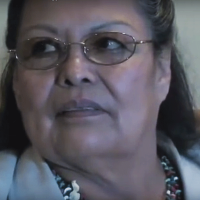
Grandma Sarah and other members of Diné CARE are fighting the expansion of existing coal mines, and in their community. They envision the Navajo Nation leading the way in renewable energy.

AT A GLANCE
Indigenous lands in North America are home to the nation’s largest coal strip mine, the largest uranium deposit, and the world’s largest oil extraction project.*
The world’s biggest privately owned coal mining company, Peabody Energy, operates a strip-mining operation on the Black Mesa plateau, located within Hopi and Navajo territories in the southwestern United States. Together, these two mines—the Black Mesa Mine (which ceased operations in 2005 after years of community advocacy around Indigenous water rights) and the Kayenta Mine (still in operation)—made up what was once the largest strip-mining operation in the U.S. *
Indigenous young people have the highest per capita rate of violent victimization, and experience post-traumatic stress disorder at rates that rival that of returning war veterans.*

"[US laws] are created by the federal government, they are not created by our traditional people. Our traditional people have a spiritual, sacred law that was given to us by our Creator, that was given to us by Mother Earth. And this law is something that, as traditional people, we abide by. This other law, the legal system, these are made by people, they aren’t made by Nature. And that’s what we abide by--our traditional laws."
— JENEDA BENALLY, SAVE THE PEAKS COALITION

THE DELEGATION

The delegation traveled from Nevada’s Western Shoshone region, where women like Carrie Dann were working to stop open pit gold mining of sacred Mt. Tenabo, to the U.S./ Mexico border, where Ofelia Rivas defends her community’s ancestral homeland from the encroaching border wall. We traveled from Flagstaff, where the Black Mesa Water Coalition fights coal mining that is depleting and polluting the Navajo Nation’s water supply, to the ongoing protest against a proposed coal-fired power plant on sacred ground at Desert Rock.
Through mpactful site visits and dialogue, the delegation bore witness to these environmental injustices and to the extraordinary women working to defend and uphold traditional ways of life. Following this visit, the group partnered to coordinate a range of assistance to each of the Native American leaders we met. Solidarity Grants provided immediate financial support for grassroots work, and direct, advocacy-based service in the months to follow boosted these on-the-ground efforts.
BACKGROUND
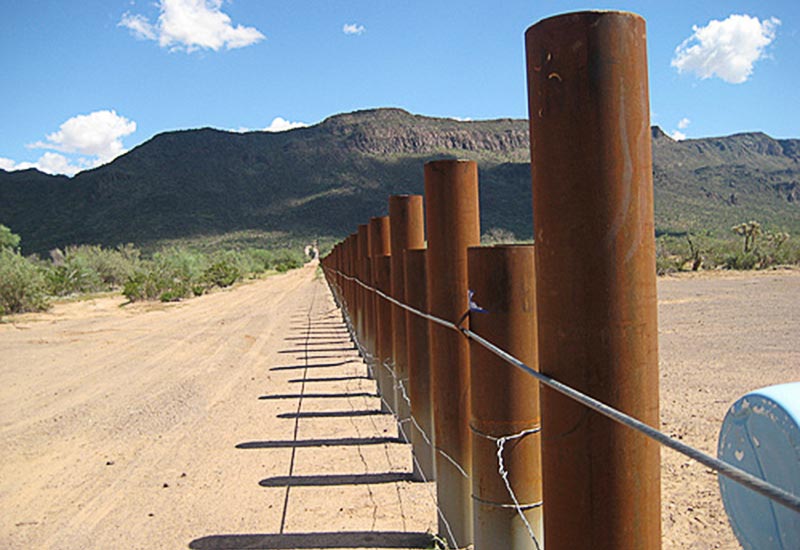
The law is a powerful and respected tool, yet it is also disembodied, linear, and based in a fragmented view of the world. Litigation is, and has historically been, a useful component of many community-based action strategies, but not all community groups have the legal training that could assist them in their struggles. Grassroots movements are in great need of the legal skills that our delegates possess. These hand-selected delegates came ready to use their training, skills, resources and expertise as true agents of change.

“Being a lawyer can be a heartbreaking experience. You are expected to work within a paradigm that is centuries out of date, one that places the value on autonomy, mastery, and hierarchy, rather than community, harmony, and equality…One of the most powerful experiences I’ve had was traveling with Women’s Earth Alliance and visiting with Indigenous women leaders. As I listened to the rhythmic cadence of soft voices telling the ancient ways, I heard resonances by now familiar from science, but in the language of the heart, the heart of the Earth. The wisdom of the Indigenous elders is coinciding with what the world’s top scientists are saying…we have to take care of the Earth now, it’s time… ”
— Libby Comeaux, Center for Earth Jurisprudence, TA Southwest delegate 2008

The Transformative Advocacy delegation offered grassroots leaders and women attorneys the opportunity to come together, to listen, to be transformed, and to be moved to action — to collaborate in ways that combine practical, on-the-ground knowledge with technical, legal assistance in order to strengthen the robust and dynamic environmental justice movements underway in Native American communities throughout the Southwest.
DESTRUCTION OF MOTHER EARTH
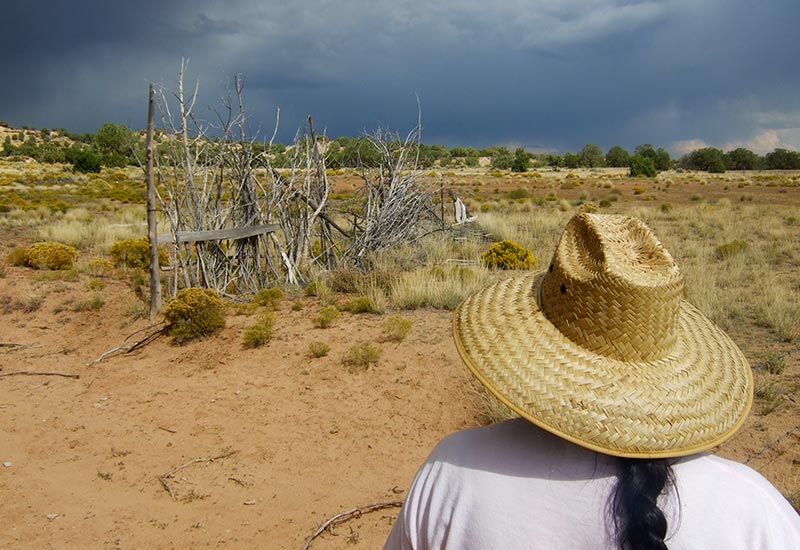
Through powerful and enriching dialogue, as well as first-hand witnessing of the devastation of sacred sites, our team learned that many of America’s domestic policies are literally built on the backs of the Indigenous people who live here in the US. We learned from the Western Shoshone Defense Project, Indigenous Environmental Network, Black Mesa Water Coalition, Dine Alliance, Dine CARE and Dooda Desert Rock about the ways that private industry’s purchase and use of sacred lands for coal and uranium extraction are poisoning the soil and water, that coal-fired power plants are polluting the air, and nuclear waste burial is desecrating sacred mountains.
Through our visit with Lori Riddle of Gila River Alliance for a Clean Environment (GRACE), we witnessed and learned about the racist practice of facilities incinerating medical waste, operating openly on Indian reservations, spewing toxic flares into the skies for hours every day.
Ofelia Rivas of Tohono O’odham Solidarity Project told of the hardships of living along the US-Mexico border. Ancestral lands and pathways to ceremony are obstructed by national border fences and arbitrary border crossing laws that are increasingly making it more difficult for O’odham people to continue their traditional way of life.
Jeneda Benally of Save the Peaks Coalition shared the challenge that the Dine, Hopi, Apache, Havasupai and others face to protect their sacred San Francisco Peaks. These mountains are central to many tribes’ cosmologies; Native people harvest medicinal and sacred herbs as well as heal and pray there. Snowbowl Ski Resort intends to use artificial snow made of reclaimed waste water to blanket the face of the mountain, which would be a serious desecration.

“I was aware that I didn’t know a lot about what was going on with Native Americans and the Indigenous people in this country, but now I have a better idea of how much I didn’t know. As a result, I am looking forward to taking what I have learned from this experience and expanding my knowledge to be able to assist these great women in their challenges. To see the strength and passion of these women inspires me at the deepest level, and I look forward to being able to work together.”
— Meredith Hall, Center for Earth Jurisprudence, TA delegate 2008

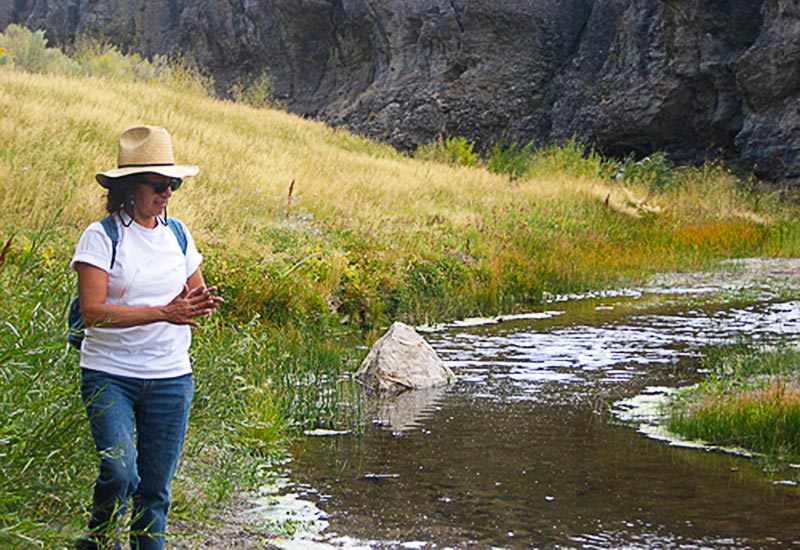
Yet in the face of entrenched environmental challenges and their attendant human rights violations, the women leaders we met were radiant and indomitable in their love for our Mother Earth. Time and again, we learned that these communities are not mired in “what’s wrong” but have already identified viable solutions: instead of extracting the flesh and blood of Mother Earth, these dedicated activists and leaders say, let’s harness the wind and solar energy that are already so abundant in these desert lands; in so doing, we can also generate green jobs and revenue.
A TRANSFORMATIVE EXPERIENCE
WEA believes that direct interface can provide access to critical human and informational resources, stimulate needed advocacy efforts, provoke important internal inquiry about respectful and committed interaction among people with diverse backgrounds, and strengthen the larger environmental justice movement through awareness-raising and networking. It is our intention that these connective experiences serve as a foundation for sustained engagement between professionally trained women lawyers and grassroots women leaders, wherein skills are put to use in a timely, appropriate and effective way within the container of our WEA Advocacy Network. This provided an opportunity for women with legal training to deeply listen to Native American leaders, interrogate their own “blind spots” regarding cross-cultural relationships, and within the context of those experiences provide useful advocacy services into the long-term.

“I think it’s necessary to bridge, to make connections between different groups, because we’re really all fighting a similar fight, which is the fight to have our legal rights recognized and the fight for justice.”
— Genesis Fisher, NYC Legal Aid Public Defender, TA Southwest delegate 2008

THE ROAD AHEAD


“Meeting the women… it makes me feel very hopeful… it makes me feel like there’s a lot more I have to learn and there’s a lot more I can do. Even though it does feel sometimes when I’m working in the community like this is never going to get through to people, this trip has reminded me to just persevere and just keep working at it.”
— Jennifer Ganata, Communities for a Better Environment, TA Southwest delegate 2008

As members of our Transformative Advocacy Network, each attorney-delegate agreed to provide at least ten hours a year of technical research and writing support to the Native women and community groups as it is requested.


